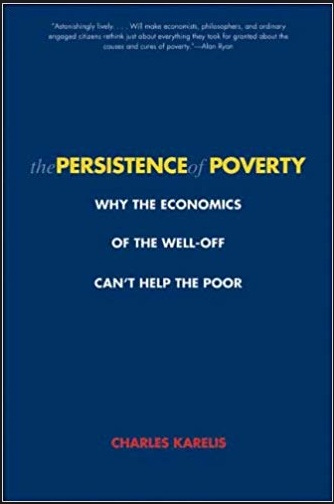The Persistence of Poverty: The Spinoffs (Part 8)

If Karelis is wrong, why have I written so much about his work? Because his arguments are so much better than his conclusion. Charles Karelis hasn’t explained poverty, but he has still enriched our understanding. He’s hardly the first person to emphasize the connection between behavior and persistent poverty, but he makes this point more forcefully and eloquently than almost anyone else. And he’s the first person to highlight the ubiquity of increasing marginal utility in real life. It’s one thing to say, “Oh, there are some non-convexities,” and another to point out lots of specific convincing examples. Karelis even has a strong meta-story about how economists have been so blind:
If your theory is correct, why isn’t it conventional wisdom already? After all, the main evidence you cite is introspected experience, and that is available to everybody. How could the fact that relievers have increasing marginal benefit have escaped the notice of the marginalists—and their followers?
I think the marginalists got the wrong answer not because they introspected inaccurately (assuming that even makes sense), but because they failed to ask the oracle of introspection the right question. (This is a common problem with oracles.)
I’d go further and say that Karelis falls short because he stopped looking for increasing marginal utilities too hastily. If he’d spent more time introspecting, he would have noticed major examples of “relievers” with standard decreasing marginal utility (like functional eyes and sleep), and major examples of “pleasers” with non-standard increasing marginal utility (hobbies, relationships, and many luxuries).
In a way, Charles Karelis is like the man who discovered Rogaine. The drug was designed to treat hypertension, but it turned out to be a cure for baldness instead. We should praise him for his intellectual contributions, even though they’re rather different than he intended.
The post appeared first on Econlib.

